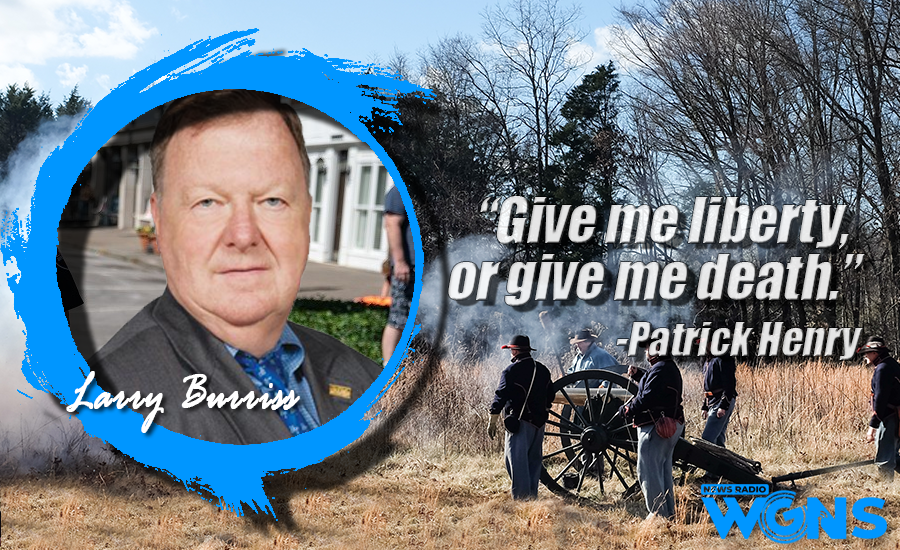COMMENTARY - In today's turbulent political times, we hear a lot about hate speeches, anti-hate speeches, opinionated agendas and how one situation is tied to another. With a look into the past and a touch of historic moments in time, here is MTSU Professor of Journalism Larry Burriss...
Commentary Verbatim: "We've been hearing a lot lately about hate speech, and the kind of speech it takes to be a "real" American, and it seems to me we can get ourselves into a lot of trouble if we start to ignore a few relevant incidents from our past when it comes to just what a "real" American is.
On May 29, 1765, 258 years ago, Patrick Henry rose in the Virginia Convention and made a speech protesting the Stamp Act. During the speech he said, "Caesar had his Brutus; Charles the First, his Cromwell; and George the Third may profit by their example."
When the head of the convention cried "Treason," Henry went on to say, "If this be treason, make the most of it."
Some 10 years later Paul Revere spread the word as the British marched into Lexington and Concord, and the patriots said, in essence, "The British are coming to get our guns, we better shoot them before they do."
The point here is not that violence is a good thing, or that we should shoot people who disagree with us. In fact, it is just the opposite. It has also been said the antidote for hatred is not less speech, but more speech.
If there is speech we disagree with, the solution to that speech is not suppression, but more speech. If there are views or positions we don't agree with, we don't shoot the messenger, we need more speech.
In his oration more than two centuries ago, Henry was protesting the Stamp Act, which was an attempt by the British government to put certain newspapers out of business; newspapers opposed to royal control of the colonies.
Other patriots used public speech to say the same thing: the Declaration of Independence, for instance, very clearly says if the people don’t agree with what the government is doing, then they need to overthrow that government and institute a new one.
In fact, this may be a good time to look at the Declaration of Independence and see what it actually says: “To secure these rights, Governments are instituted among Men, deriving their just powers from the consent of the governed, –That whenever any Form of Government becomes destructive of these ends, it is the Right of the People to alter or to abolish it, and to institute new Government.”
Of course, the Declaration goes on to say these changes should not be made for what it calls, “light and transient causes.”
The whole point here is that free speech, while it may make us uncomfortable, is how free people let the government know what they are feeling, and that they want some changes.
It might also be helpful, to remember another statement by Patrick Henry: "Give me liberty, or give me death. - I'm Larry Burriss."
About Dr. Burriss - Larry Burriss, professor of journalism, teaches introductory and media law courses. At the graduate level he teaches quantitative research methods and media law. He holds degrees from The Ohio State University (B.A. in broadcast journalism, M.A. in journalism), the University of Oklahoma (M.A. in human relations), Ohio University (Ph.D. in journalism) and Concord Law School (J.D.). He has worked in print and broadcast news and public relations, and has published extensively in both academic and popular publications. He has won first place in the Tennessee Associated Press Radio Contest nine times. Dr. Burriss' publications and presentations include studies of presidential press conferences, NASA photography, radio news, legal issues related to adolescent use of social networking sites, legal research, and Middle Earth.
Dr. Burriss has served as director of the School of Journalism, dean of the College of Mass Communication and president of the MTSU Faculty Senate. He was appointed by Gov. Phil Bredesen to serve on the Tennessee Board of Regents. He was a lieutenant colonel in the U.S. Air Force and served on active duty in Mali, Somalia, Bosnia, Central America, Europe and the Pentagon.







